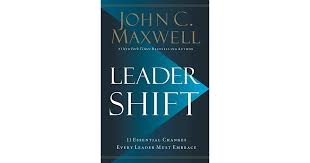
Politics is the art of looking for trouble, finding it everywhere, diagnosing it incorrectly, and applying the wrong remedies. – Groucho Marx
An elderly gentleman was sitting on a park bench, basking in the sun when another elderly man sat down next to him. They looked at each other for a moment but did not speak. Both men sat there, staring straight ahead.
After a while, one of them heaved a big, heartfelt sigh.
The other jumped up immediately and said, “If you’re going to talk politics, I’m leaving.”
Leadership in the best of times can be difficult. John Maxwell eloquently put it this way, “Sometimes, leadershi[p sucks.” Can you relate?
Being a leader during an election cycle such as we are in now has the potential to create a toxic environment in your workplace. Chances are, you have already experienced it on some level. And while people can be very passionate about their views, how you tread these waters as a leader can be tricky. Side with group A and you alienate those in group B. Side with group B and you alienate those in group A – and back and forth it goes.
Here’s the reality – everyone has a set of political beliefs that they subscribe to and regardless of those beliefs, everyone’s views ought to be respected. No one’s morals should be called into question regardless of who they support or oppose and no one should be punished because of it.
As a leader, how you position yourself among your people during this time is important. Some leaders within their organizations opt to stay out of it. Others jump right in. But in the context of the effects on your culture and relationships, what’s a good approach? Here are a few tips.
Foster a culture of acceptance
How you model acceptance is important. Our diversity is our greatest asset. We are better for it. There ought to be room for differing views without fear of repercussion. Click To Tweet As for your workplace culture, acceptance fosters relationships that lift and unites, never tearing down. It’s not unreasonable to expect that people with differing political views can work together for the good of the organization.
Promote meaningful dialogue
So long as we are shouting over one another, the partisan divide will always exist. Meaningful dialogue with an emphasis on asking questions and listening will go a long way in building bridges rather than tearing them down. Your workplace culture ought not to be a place where your people dread going during this election season. It ought to be a place for meaningful conversations. Click To Tweet
Always protect your culture
While it may be wishful thinking that all conversations are meaningful between your people and everyone is accepting of the views of their colleagues – all it takes is one, two, or more to upend your culture and wreak havoc in your workplace. These people can be toxic to your culture and the consequences can be detrimental. Above all else, you must protect your culture.
Final Thoughts
While it’s important that we accept the views of others and that we aim for meaningful conversations, we must also bear in mind that not everyone cares to participate in these exchanges in your workplace. Believe it or not, there are those who are just as passionate about their politics as you, just not as vocal. They just choose not to constantly talk about it or post their opinions all over social media. That has to be respected as well.
Leading in the era of the partisan divides doesn’t have to be destructive, but it will take strong leadership to pull it off.
©2020 Doug Dickerson







 Recently, I was reading back through
Recently, I was reading back through 



